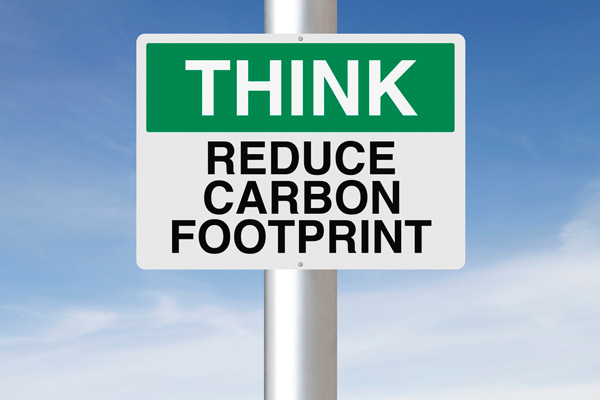Quick Carbon Footprint Calculator: Gauge Your Environmental Impact

Recognizing your carbon footprint is a critical initial step toward grasping your environmental impact. More importantly, it empowers you to make informed decisions that contribute to significant and sustainable environmental improvements. At R.F. Ohl, our commitment extends beyond providing energy solutions; we guide our customers on the path to achieving carbon neutrality.
In this comprehensive article, we cover several key topics:
- Interactive Carbon Footprint Calculator: Use our tool to gauge your current environmental impact.
- Exploring Carbon Footprints: We provide a detailed exploration of what carbon footprints are and why they matter.
- Strategic Reduction Techniques: Discover practical strategies tailored by R.F. Ohl to help reduce your carbon footprint effectively.
- Additional Insights and Resources: Gain access to more in-depth information and tips to enhance your sustainability journey.
Carbon Footprint Calculator
Contents
- Carbon Footprint Calculator
- Tips to Reduce Your Carbon Footprint
- How Using Bioheat® Home Heating Oil Can Change Your Carbon Footprint
- Common Bioheat® Fuel Oil FAQs
- How Does Bioheat® Fuel Oil Compare To Traditional Heating Oil In Terms Of Energy Efficiency?
- What Are The Environmental Benefits Of Using Bioheat® Fuel Oil Beyond Reducing Carbon Emissions?
- How Does Using Bioheat® Fuel Oil Support Local Economies?
- What Steps Does R.F. Ohl Take To Ensure The Quality And Sustainability Of Their Bioheat® Fuel Oil?
- How Does Bioheat® Fuel Oil Impact The Longevity Of My Heating System?
- Call R.F. Ohl For Fast & Affordable Heating Oil Deliveries
By measuring your carbon footprint, you’re not just quantifying your impact on global warming—you’re taking a critical first step towards meaningful change. This analysis allows you to pinpoint the most effective areas for reducing your environmental footprint swiftly and substantially.
While adopting environmentally-friendly habits, such as composting or choosing locally-sourced foods, is commendable, there’s always room to enhance these efforts. Every small adjustment contributes to a larger scale transformation towards sustainability.
Utilize our carbon footprint calculator below to uncover additional opportunities for reducing your impact on global warming. Both homeowners and business owners often find the results eye-opening, serving as a catalyst for adopting more profound and effective environmental practices.
Understanding Carbon Footprints and Their Environmental Impact
A carbon footprint represents the total amount of greenhouse gases produced by our everyday activities, such as energy use in our homes, driving cars, and the goods and services we consume. These gases primarily include carbon dioxide, methane, nitrous oxide, and fluorinated gases. These compounds are potent at trapping heat in the Earth’s atmosphere, contributing to the greenhouse effect.
While the greenhouse effect is a natural and necessary phenomenon that warms the planet’s surface and atmosphere to sustain life, human activities have intensified this effect by significantly increasing the concentration of these gases. This heightened greenhouse effect accelerates global warming, leading to severe and tangible impacts on climate patterns, rising sea levels, and increased frequency of extreme weather events worldwide.
Why Your Carbon Footprint Should Matter to You
By understanding and actively managing your carbon footprint, you can make a significant contribution to the planet’s sustainability. Your carbon footprint isn’t just a statistic—it’s a reflection of the carbon emissions generated by your daily activities and choices. These emissions result from the resources we consume, including food, water, timber, land, and fibers. In essence, our carbon footprint represents our demand on the planet’s finite resources, and a higher footprint accelerates the depletion of these essential resources.
In the United States, the average individual carbon footprint is estimated at a staggering 16 tons per year, compared to a global average of just 4 tons. This disparity highlights the urgent need for collective action to reduce our environmental impact. As a community, it’s imperative that we work together to minimize our carbon footprints. At R.F. Ohl, we are dedicated to helping our customers achieve this goal through the use of Bioheat® Heating Oil, a liquid renewable fuel that significantly reduces carbon emissions. By choosing Bioheat® Fuel, you’re not just lowering your carbon footprint—you’re actively participating in the global effort to preserve our planet for future generations.
Tips to Reduce Your Carbon Footprint

Reducing your carbon footprint may seem overwhelming, but even small, consistent changes can lead to significant environmental benefits. By making conscious choices and gradually modifying your daily habits, you can contribute to a healthier planet. Here are some practical steps you can start implementing today:
- Switch to Environmentally-Friendly Heating Oil: Consider heating your home with environmentally-friendly options like Bioheat® Oil. BONUS TIP: R.F. Ohl delivers Bioheat® Oil automatically, with no added cost to you!
- Upgrade to Efficient Lighting and Appliances: Using energy-efficient lighting and appliances at home and in the workplace reduces energy consumption and lowers your carbon footprint.
- Reduce Power Demand: Minimize your reliance on the electrical grid by adopting energy-saving practices, such as turning off lights when not in use, and using smart thermostats.
- Limit Vehicle Use: Decrease your dependence on personal vehicles for daily travel. Consider walking, biking, carpooling, or using electric vehicles to reduce emissions.
- Maintain Your Vehicle: Regular vehicle maintenance ensures optimal performance and fuel efficiency, reducing the carbon emissions from your car.
- Cut Down on Air Travel: Air travel has a significant carbon footprint. Whenever possible, opt for alternative modes of transportation or reduce the frequency of flights.
- Modify Your Diet: Simple changes, such as adopting a “Meatless Monday” or reducing meat consumption, can lower your carbon footprint. Eating plant-based meals has a smaller environmental impact.
- Eat Locally: Support local food producers to reduce the carbon emissions associated with transporting goods over long distances.
- Shop Sustainably: Adjust your shopping habits by choosing clothing and accessories from brands committed to sustainable practices, and avoid those with unsustainable production methods.
These tips illustrate that reducing your carbon footprint doesn’t have to be expensive or difficult. Small changes can easily become part of your daily routine. For example, if you already use heating oil, switching to Bioheat® Home Heating Oil—a liquid renewable fuel offered by R.F. Ohl at no additional cost—can make a substantial difference. Reach out to R.F. Ohl to learn more and take your first step toward a more sustainable lifestyle.
How Using Bioheat® Home Heating Oil Can Change Your Carbon Footprint
Bioheat® Oil is a cleaner, more sustainable alternative to traditional heating oil, made by blending biodiesel with ultra-low sulfur oil. This combination creates a clean-burning fuel that reduces emissions and environmental impact, making it an ideal choice for home heating.
Bioheat® Fuel Oil stands out as an eco-friendly heating option due to its biodiesel content. Biodiesel is derived from fatty acids found in organic materials like corn, soy, vegetables, and animal fats, and can even be sourced from recycled cooking oils used in restaurants. These renewable resources make biodiesel a sustainable energy source, reducing reliance on fossil fuels.
Bioheat® Heating Oil is categorized based on the percentage of biodiesel in the blend, typically ranging from 2% to 20%. For instance, a blend with 5% biodiesel is labeled B5, while a blend with 20% is called B20. At R.F. Ohl, we proudly offer a B5 blend, and we are the only company in Carbon County providing a 5% bio blend. This commitment to renewable energy solutions not only benefits the environment but also offers our customers a cleaner, more efficient heating option.
Advantages of Choosing Bioheat® Fuel Oil
At R.F. Ohl, we are committed to providing you with top-quality heating oil by using a B5 biodiesel blend. This means that not only are you receiving an exceptional heating product, but you are also contributing to a reduction in your carbon footprint simply by using our oil. By offering this greener heating solution, R.F. Ohl is actively helping to lower the amount of carbon released into the environment. Our Bioheat® Oil is designed to burn cleanly and efficiently, all at no additional cost to you.
We understand that some customers may have concerns about the compatibility of Bioheat® Fuel Oil with their current heating systems. Rest assured, there’s no need to worry! Your existing furnace or boiler does not require any modifications to use our Bioheat® Home Heating Oil. The moment you switch to Bioheat® Oil, your heating system will immediately begin to produce fewer carbon emissions.
Ready to make a positive impact on the environment? Contact R.F. Ohl today for more information and personalized recommendations.
Common Bioheat® Fuel Oil FAQs

How Does Bioheat® Fuel Oil Compare To Traditional Heating Oil In Terms Of Energy Efficiency?
Bioheat® Fuel Oil offers similar, if not better, energy efficiency compared to traditional heating oil. It burns cleaner, which can lead to less residue buildup in your heating system, potentially improving its overall efficiency and lifespan.
What Are The Environmental Benefits Of Using Bioheat® Fuel Oil Beyond Reducing Carbon Emissions?
Beyond reducing carbon emissions, Bioheat® Fuel Oil helps decrease the demand for fossil fuels, supporting the renewable energy sector. Additionally, its production from organic and recycled materials contributes to waste reduction and promotes sustainable agriculture.
How Does Using Bioheat® Fuel Oil Support Local Economies?
Bioheat® Fuel Oil is often produced from domestically sourced renewable materials, such as soybeans and animal fats. By choosing Bioheat®, you support local farmers and producers, which strengthens local economies and reduces reliance on imported fossil fuels.
What Steps Does R.F. Ohl Take To Ensure The Quality And Sustainability Of Their Bioheat® Fuel Oil?
R.F. Ohl is committed to providing high-quality Bioheat® Fuel Oil by sourcing biodiesel from reputable suppliers who adhere to stringent environmental and sustainability standards. We ensure that our Bioheat® blends meet or exceed industry standards for clean, efficient heating.
How Does Bioheat® Fuel Oil Impact The Longevity Of My Heating System?
Bioheat® Fuel Oil’s cleaner burn reduces the buildup of soot and other deposits in your heating system, which can decrease wear and tear on components. This cleaner operation may contribute to a longer lifespan for your furnace or boiler, reducing maintenance costs over time.
Call R.F. Ohl For Fast & Affordable Heating Oil Deliveries
R.F. Ohl is a reliable HVAC company and heating oil supplier throughout northeastern Pennsylvania. We offer the most competitive heating oil prices in Northeastern Pennsylvania, and our deliveries are always completed promptly and efficiently. We offer many different delivery plans and financing options so that you can customize your heating oil deliveries to fit your needs. In addition, we employ only experienced, licensed HVAC technicians to complete any necessary heating tune-ups and repairs so that you can reduce your overall energy costs.
At R.F. Ohl, we provide state-of-the-art HVAC repairs, replacements, tune-ups, and installations. Our professionals have the knowledge and experience to offer practical and reasonably priced solutions for all your home comfort needs.
Contact R.F. Ohl as soon as possible, and we will be happy to schedule a complimentary, in-home estimate of your HVAC system. Likewise, call us today to find out more about our fuel deliveries. Click the link to view our service area.
Click here to contact us today or give us a call at (610) 377-1098 if you have any questions.

Related Articles: